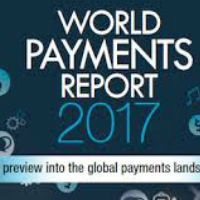Payment Processing in 2017: FX-MM’s survey and the results
| 4-8-2017 | treasuryXL | FX-MM |
 For almost 25 years, FX-MM publishes about the issues that bankers, corporate treasurers, fund managers, traders, brokers and technology vendors face in the international financial markets. With a focus on treasury, trading and technology, FX-MM serves all of these sectors effectively with their magazine on a monthly basis. Earlier this year they asked their community to take part in their payments processing survey, which they had conducted together with Accuity. 215 senior professionals involved in payments processing from the banking and corporate sector, ranging from the largest multinationals to SMEs, responded.
For almost 25 years, FX-MM publishes about the issues that bankers, corporate treasurers, fund managers, traders, brokers and technology vendors face in the international financial markets. With a focus on treasury, trading and technology, FX-MM serves all of these sectors effectively with their magazine on a monthly basis. Earlier this year they asked their community to take part in their payments processing survey, which they had conducted together with Accuity. 215 senior professionals involved in payments processing from the banking and corporate sector, ranging from the largest multinationals to SMEs, responded.
FX-MM now published a summary of the results online, which we summarize for you.
According to FX-MM’s editor Peter Graham the survey shows the ‘critical importance of payments data accuracy for banks and corporates as they seek to grow their businesses and increase their presence across the world.’
FX-MM made a difference between financial institutions and corporations in their survey. To be categorised in the corporate category, the respondent must work for a non-banking organisation that makes a substantial amount of payments through their daily operations. Typically this includes a range of payroll, supplier, and partner transactions and was referred to as ‘corporates’.
95 top-level corporate respondents from a wide range of industries took part in the survey, with the majority either being treasurers or chief financial officers.
The 120 respondents from the banking sector represented individuals working in all areas of payments processing, from corporate banking, payment operations, and electronic payments, to remittances, settlements and operations. Much like the corporate respondents, the banking respondents represented a wide range of organisations, .
Global reach

Geographically, respondents to the survey were mainly based in Europe and North America. 25% of bank respondents, and 20% of corporate respondents, however, were based outside these mature markets and featured representatives from all regions across the globe.
The majority of banks – 39% – are active in at least 15 regions, and at least 20% serve more than 50 geographic markets. Since only 21% of the banks only process payments domestically, these results highlight the need for accurate payments data across a range of regions. The survey highlights the frequency in which banks today are operating in emerging markets. Indeed, 61% of banks said they often or always route payments through Eastern Europe, 56% through Asia Pacific, 37% through Africa and 35% through Central and South America.
The need for global reach, and the increasing internationalisation of today’s business world, is also reflected in the corporate world. While just 9% of corporate respondents to the survey only send or receive payments domestically, 72% send or receive payments to up to 50 countries.The rest % send payments to more than 50 countries.
It seams that corporates are even more likely to expand their operations internationally than banks, with 64% saying they intend to enter new geographic markets. That implies that a wide scope of payments data is critical as corporates plan for the business needs of the future.
Why does payments data accuracy matter more in today’s market landscape?
Sarkis Akmakjian, Senior Director, Product Management at Accuity, explains:
‘Evolving business strategies combined with the demand to send payments into emerging markets drives the need for accurate payments that go through every time and in any location. Yet, underpinning each successful transaction is critical financial and routing data. It is not surprising, then, that many financial institutions and multi-national organisations have become more concerned with ensuring this critical information is kept up to date.’
For multi-national corporations, accurate payments data is becoming a key factor in achieving strategic objectives. As the survey highlights, a growing number of global corporations (64%) are expanding their supply chain, customer base and workforce into new markets. However, this cannot be fully achieved if payments cannot be processed with certainty into those countries.
Many respondents (61%) acknowledge that their business could take advantage of new opportunities if it was less of a challenge to process payments. Therefore, they are most helped when payments data is delivered through tools that enable efficient processing.
For financial institutions, accurate routing data drives metrics like straight-through-processing (STP) rates and client satisfaction. In fact it takes fewer delayed payments which damage relationships with clients in a financial market that is growing more competitive.
For both financial institutions and global businesses, the ability to overcome global payments challenges grows more important. Both types of businesses are looking to the accuracy of their bank and routing data to meet the pressure for accurate payments.
Mission critical for corporates
 Significant consequences for corporates arose from not having complete and accurate payments data for their suppliers and vendors. 58% said it led to too much time spent on manual research to correct data errors, while 31% said it led to a lack of trust and posed a reputation risk with vendors.
Significant consequences for corporates arose from not having complete and accurate payments data for their suppliers and vendors. 58% said it led to too much time spent on manual research to correct data errors, while 31% said it led to a lack of trust and posed a reputation risk with vendors.
The survey revealed that there are clear challenges for corporates as they onboard and maintain payments data for their suppliers and vendors. The corporates indicate that problems arose when vendors did not keep them up to date when their payments data changed, or when vendors did not supply all the information they needed. Corporates also stated that their onboarding process was too arduous and that they did not catch errors in vendor data.
Despite these challenges, the importance that corporates attach to payments processing should not be underestimated. 82% of respondents said the ability to process payments accurately had a direct effect on their organisation’s current success and future growth, while 62% said their organisation could take advantage of more new business opportunities if processing payments were less challenging.
The survey revealed the biggest challenges corporates face in keeping bank and payments up to date, namely manual entry of data that led to errors in their master database and ensuring that payments met complex country-by-country requirements and language requirements.
Bank STP concerns

For banks, 57% said their straight-through-processing (STP) rate for payments was less than 95%. Clearly, this is a cause for concern. The most common cause of payment failure or delay at banks was incorrect or missing beneficiary details, missing or incorrect clearing system details or missing or incorrect account numbers.
The survey also revealed bank priorities for payment processing in 2017. . More than half of the respondents said reducing cost, time and effort was a priority. 42 % cited the need to minimise the risk and exposure of failed payments. A larger group mentioned the automating of data and workflow to save time. 33% of the banks in the survey wanted to protect organisational reputation and existing customer relationships.
It became obvious that banks are feeling the pressure as far as payments processing is concerned.
Without doubt payments are a vital instrument to keep the global economy running. Banks and corporates face challenges. Inaccurate data is clearly an obstacle to increase straight-through-processing and to realise the full benefits of payments automation. Overcoming these inaccurate data issues will reduce costs for banks and corporates and also place them in a better position to take advantage of business opportunities as they expand into the global markets.
(Source: FX-MM)
You can read the complete article about the survey results on FX-MM by following this link.
 Annette Gillhart – Community manager treasuryXL
Annette Gillhart – Community manager treasuryXL
[separator type=”” size=”” icon=””]












